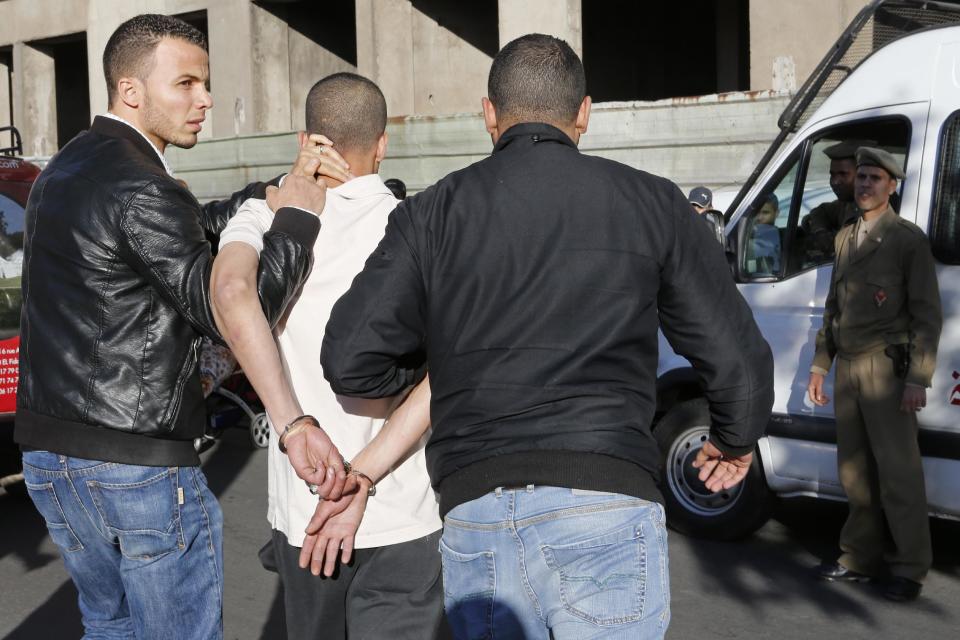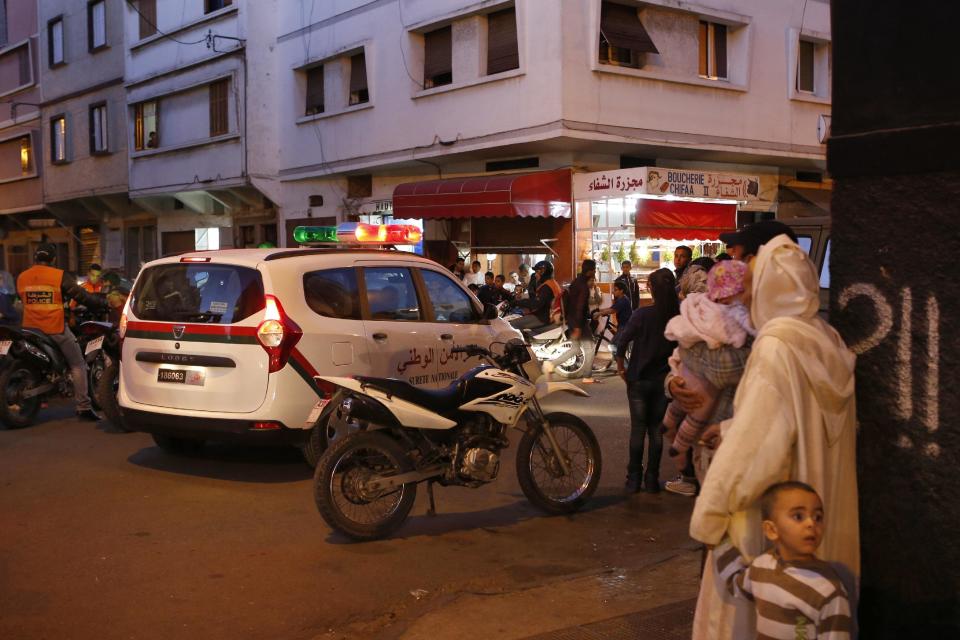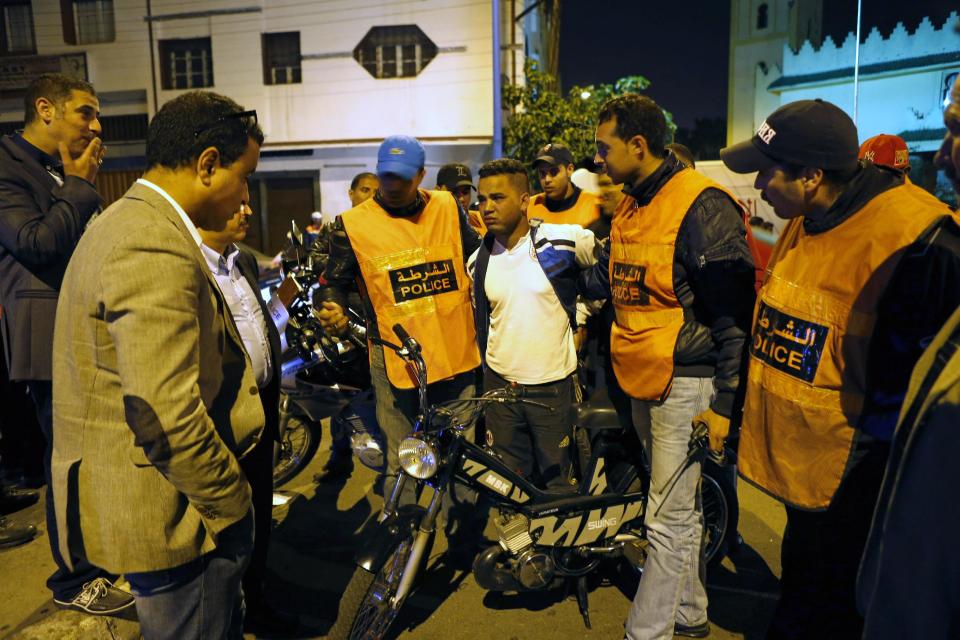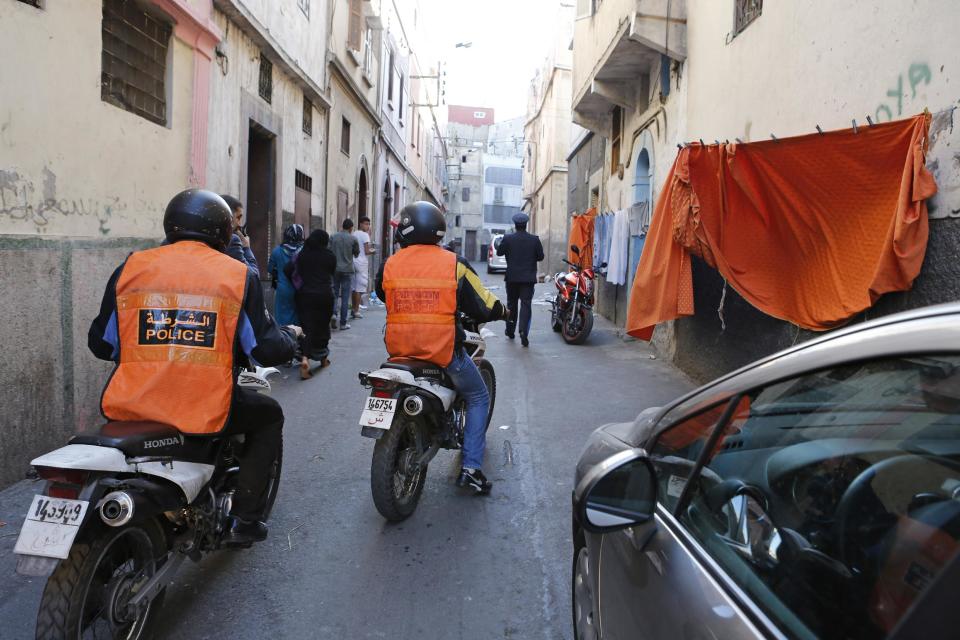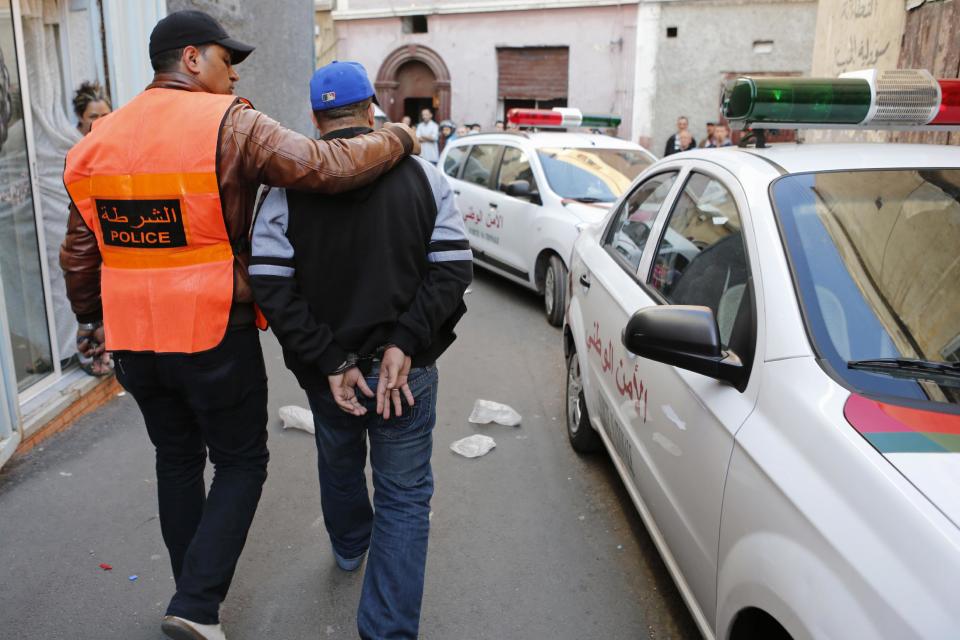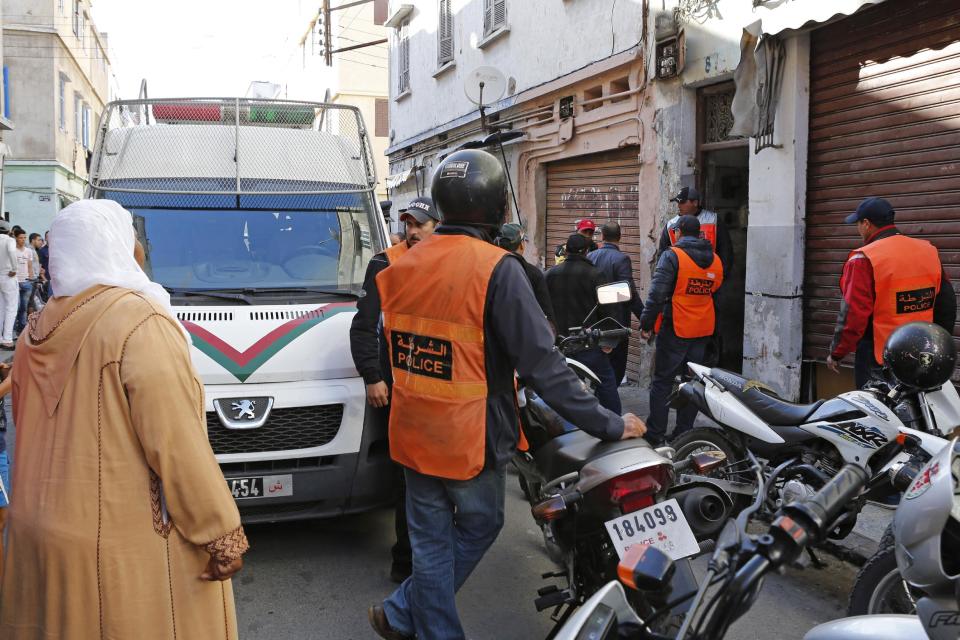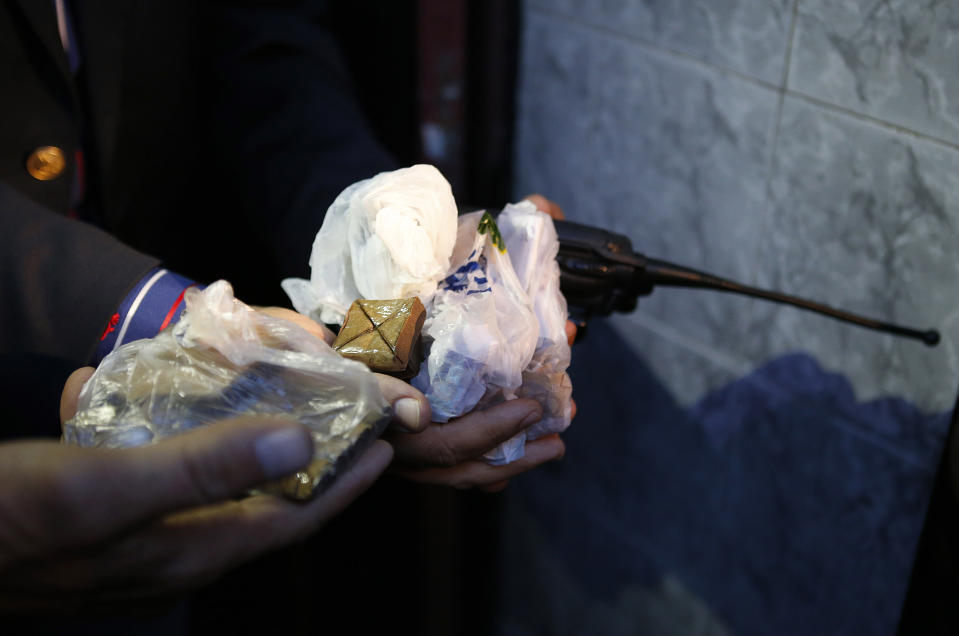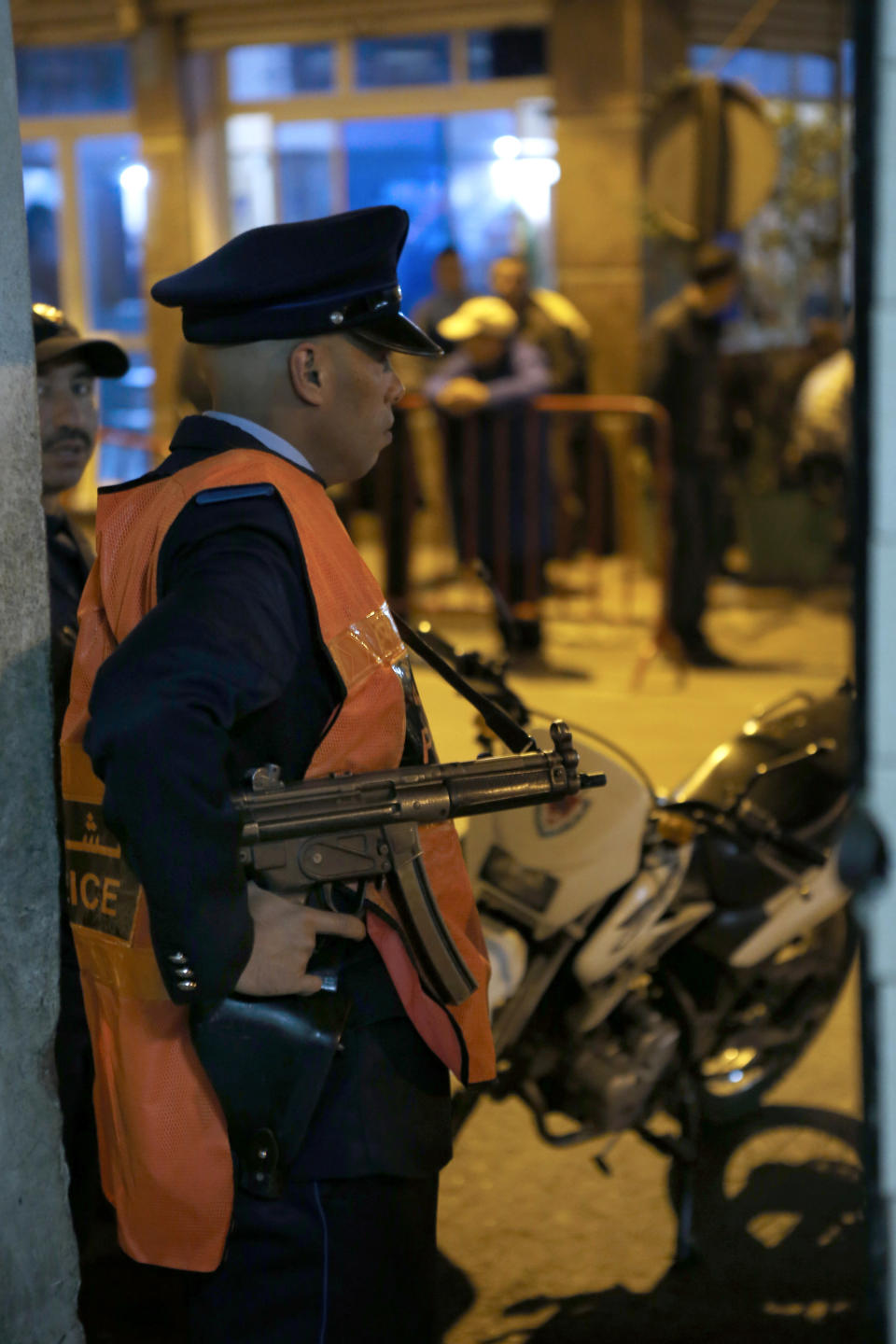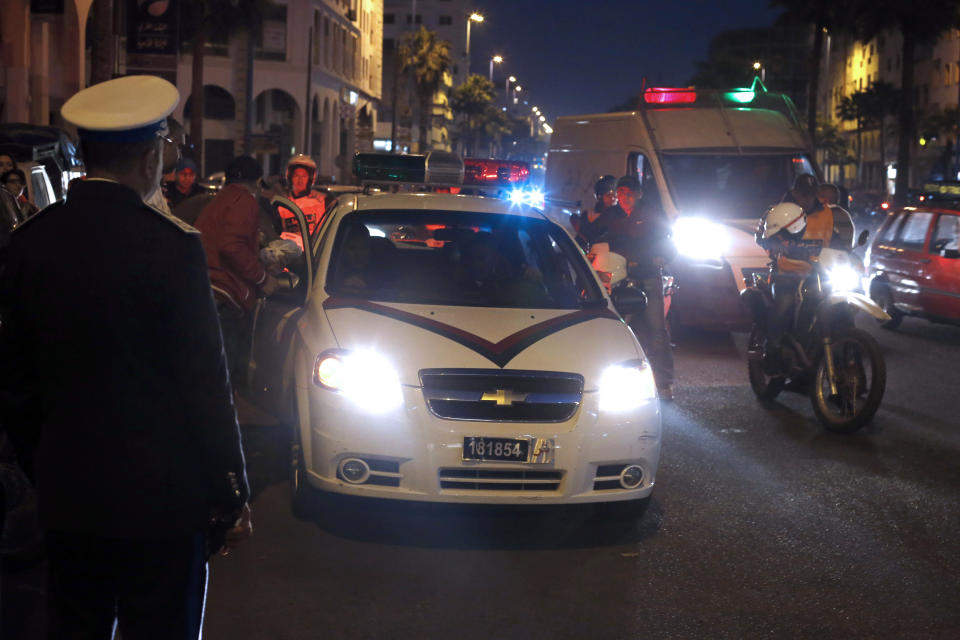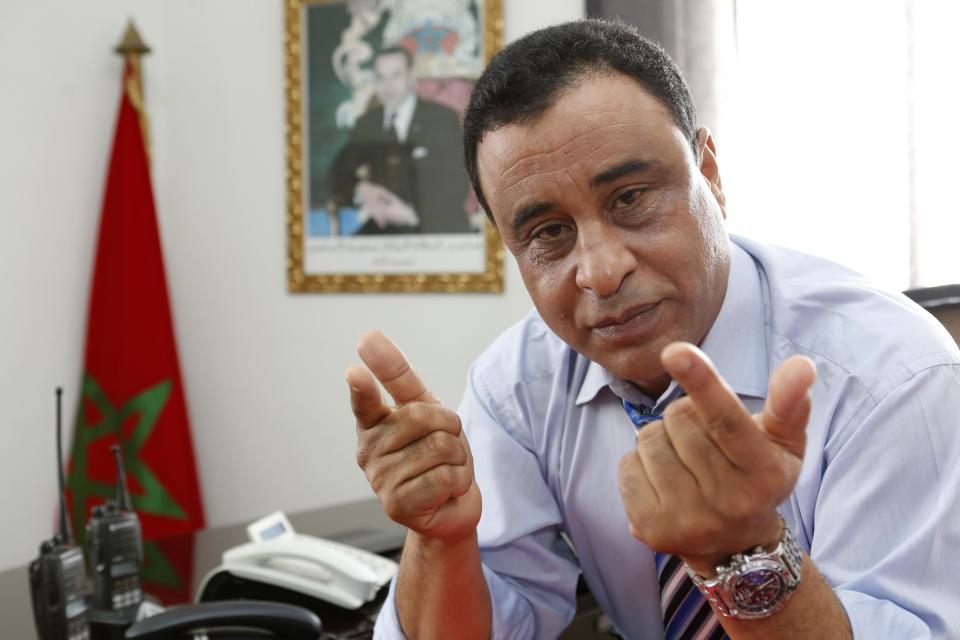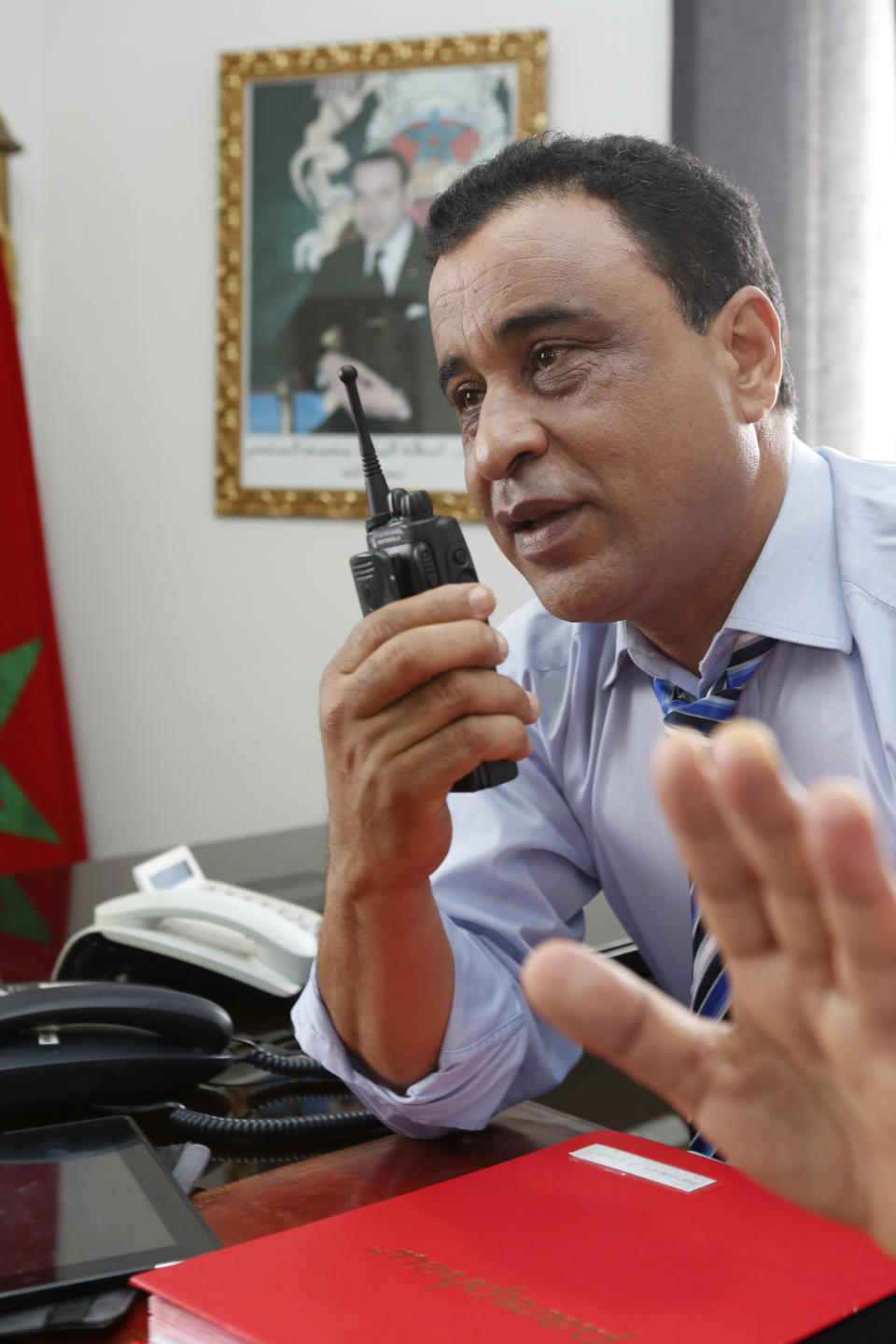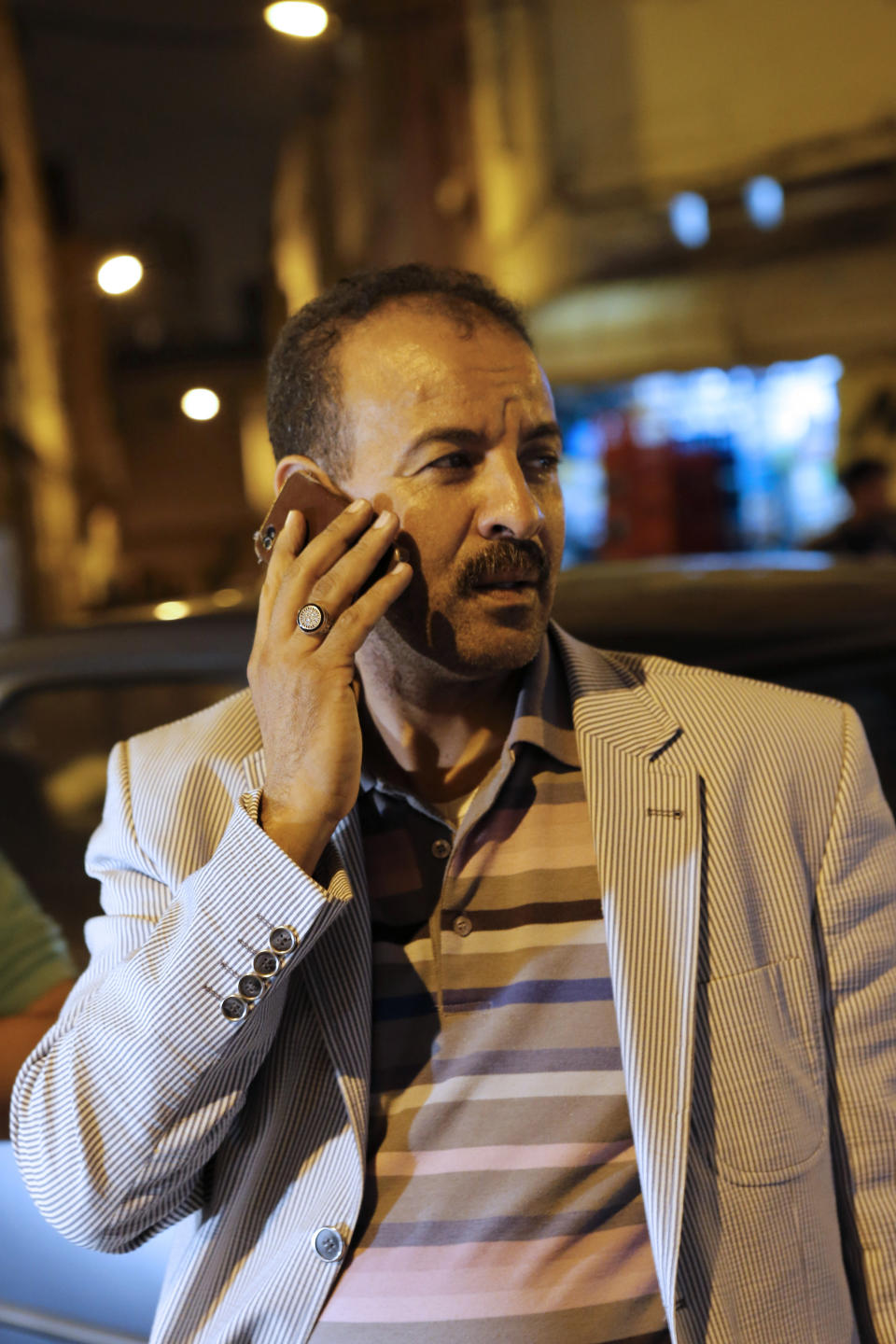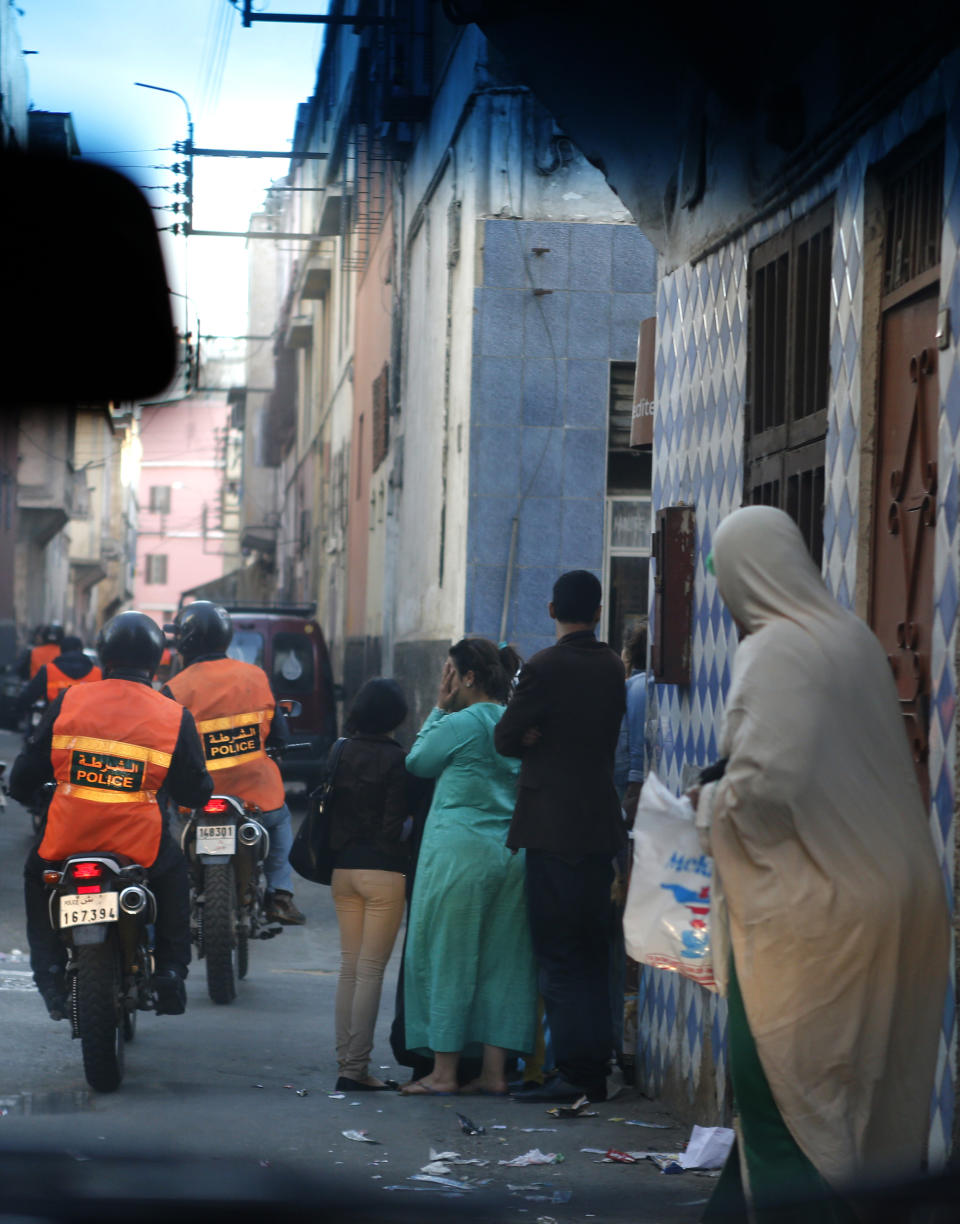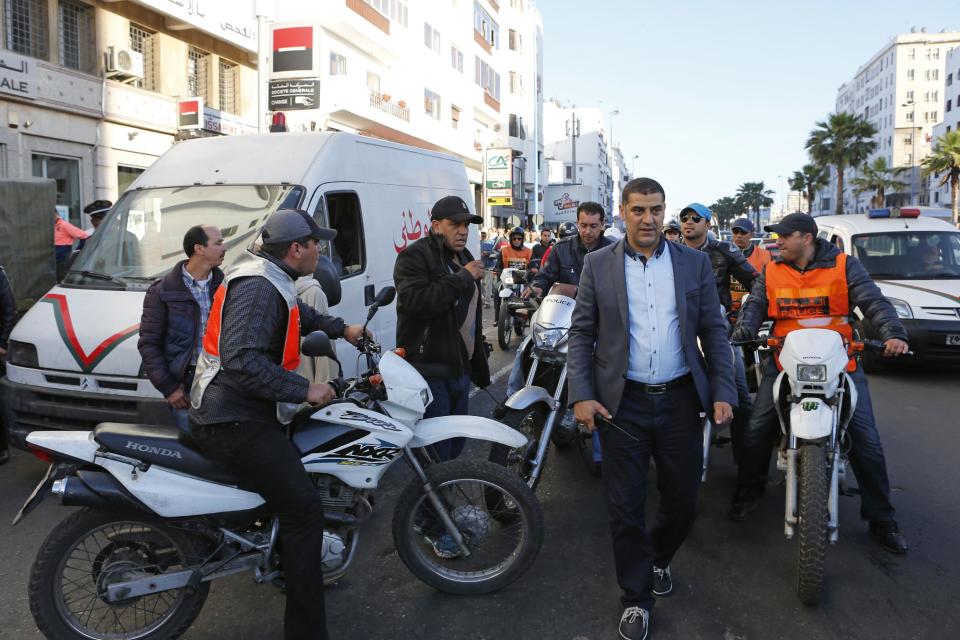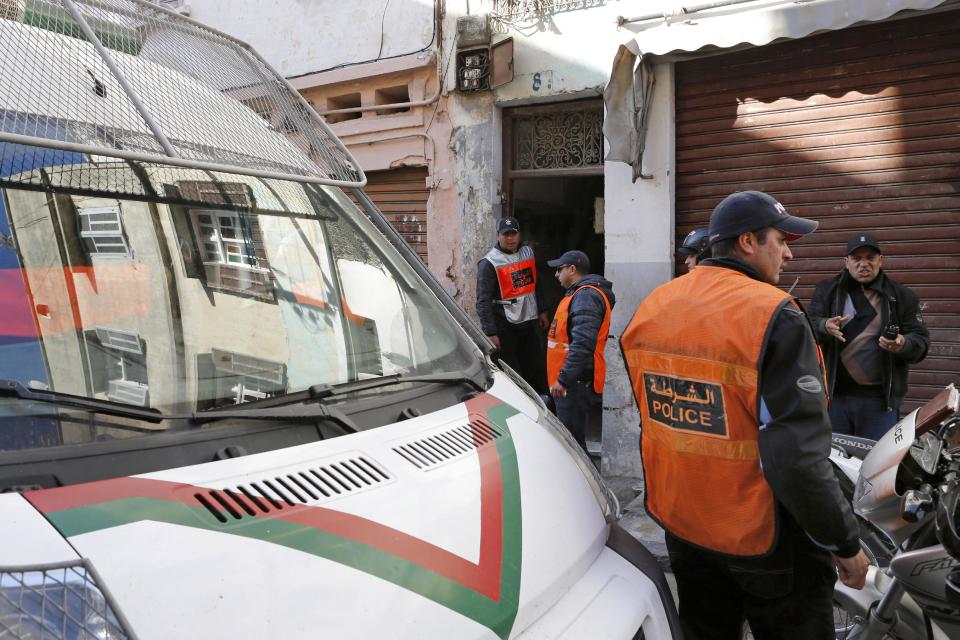Morocco police tackle crime with harsh tactics
CASABLANCA, Morocco (AP) — Casablanca has always had a seedy underbelly. Now a spike in violent crime has ignited a public outcry, a debate in parliament and an order from Morocco's king himself to crush this "menace."
Photos posted on Facebook show muscular young Moroccan men, often tattooed, with elaborate haircuts, pricey athletic shoes and expensive mobile phones wielding huge cleavers. In the past few months, there's been a rise in muggings by these young men riding souped-up motorbikes.
As home to most of Morocco's economy — as well as most of its slums — Casablanca is a city of extremes. It has skyscrapers and high-end nightlife as well as the crushing poverty that spawned the angry youths who killed 33 people in a spate of bombings in 2003.
A recent crackdown on the so-called "Tchermil" hooligans — a slang Moroccan term for marinated meat — has boosted the popularity of Morocco's long-distrusted police but has also prompted condemnation by rights groups for the police's tactics.
Local and international rights groups have long accused police of torturing confessions out of suspects and using excessive force against demonstrators. One man reportedly committed suicide on April 20, after police forcibly shaved his head.
According to the latest statistics from the U.N.'s Global Study on Homicide, there's also been a sharp rise in murders in Morocco between 2011 and 2012, with the rate going from 1.5 people per 100,000 to more than 2 per 100,000.
Police say between April 7 and 25 they arrested 83 men in Casablanca alone and dramatically reduced the muggings.
Khiati Bihaoui from Sidi Battach, a small town outside Rabat, described how his brother Ahmed and some friends were rounded up on April 19 while watching a concert.
"My brother had signs of torture on his body and it was clear he was beaten by those who arrested him," he said. "When he came home, he no longer had his long hair. Humiliated, he killed himself the next day."
Nabila Benomar, an opposition parliamentarian from the city of Meknes, brought the matter up in the assembly, asking the Interior Ministry about why such measures were being used. Her query in early April has yet to be answered.
"I myself have met three victims from Casablanca and others from Meknes who all confirmed that they were given forced haircuts by the authorities," she told AP. "I am deeply shocked by this practice, which reminds of the sad episodes in our history. "
She was referring to the pervasive human rights violations during the reign of the previous King Hassan II until 1999.
This time, however, state television announced the dismissal of the government official responsible for the arrest.
"Attacks against citizens have been on the rise recently and the authorities must get involved to restore order but not to the detriment of individual rights and freedom," said Ahmed el-Haij, the president of the Moroccan Association for Human Rights.
Ahmed Kaabouche, the police commissioner for Casablanca's rough Mers Sultan neighborhood, says the crackdown on crime has improved the police force's image.
"Police have always been fighting delinquency but today we actually feel the support by the citizens who welcome us and are no longer afraid to denounce suspects," he said. "Before we felt there was a kind of indulgence of the criminals and distrust of the police."
An Associated Press reporter joined a recent patrol, watching as inhabitants cheered police cars and motorcycles driving through the rough Mers Sultan neighborhood.
Kaabouche dismissed most of the Tchermil-style photos online — those showing young men posing with motorbikes, alcohol and money — as just wannabe gangsters. But with the renewed public support, he said police have been able to arrest a number of fugitives and brought down muggings by 80 percent in the past month.
"Those who are brought to justice are there only because they have broken the law, and not because they have distinctive haircuts," he said.
____
Associated Press writer Paul Schemm contributed to this report from Rabat.

